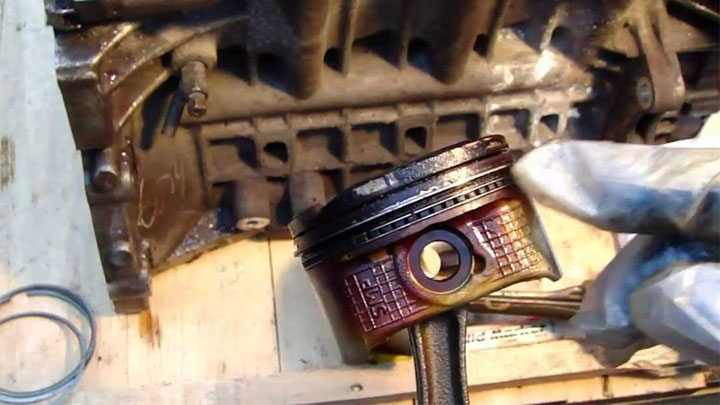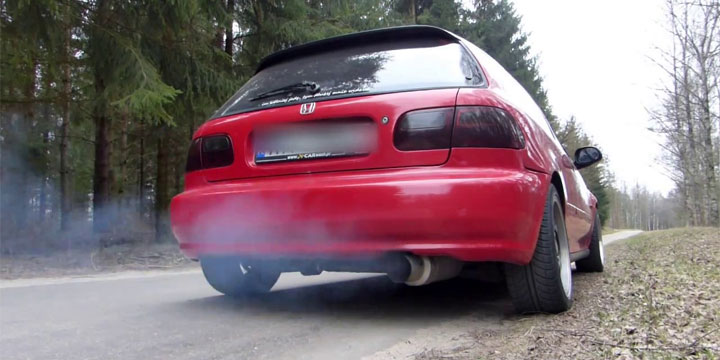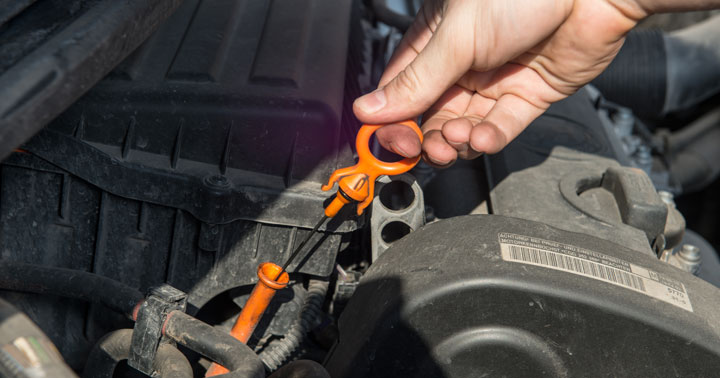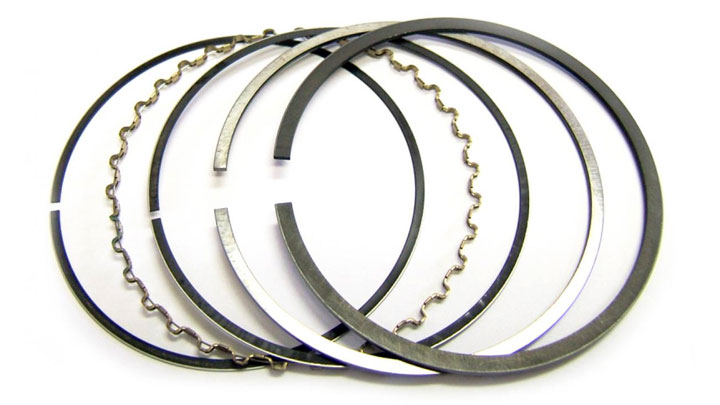3 Symptoms of Bad Valve Seals and Piston Rings and Replacement Cost
Valve seals and piston rings may seem insignificant, but their failure allows oil burning, compression loss, and performance issues to creep in.
Learn to recognize the symptoms of bad valve seals and piston rings before serious engine damage occurs. But try not to be shocked when you get to the Replacement Cost sections below. I could still be worse.

Functions of Piston Rings
Piston rings are located between the piston and cylinder and provide four different functions:
- Compression Seal: The ring creates a seal, preventing combustion gasses from leaking out of the chamber. Leaks can drastically reduce engine performance.
- Heat Transfer: Every time combustion occurs, the internal temperature of the chamber spikes. These high temperatures can cause serious damage. A piston ring helps transfer this excess heat from the piston head to the cylinder, reducing the risk of heat damage.
- Lubrication Control: A film of oil is necessary to keep the piston lubricated. The piston ring helps regulate the amount of oil that reaches the piston.
- Piston Support: The piston works on a crank and could easily bang into the cylinder wall if not for the piston ring’s padded support.
It is important to note that piston rings wear out, which means you’ll likely need to have them replaced at some point.
Functions of Valve Stem Seals
Valves regulate how much of the fuel mixture enters the cylinder. The valve itself has a seal (and sometimes a protective sleeve) to help prevent leakage of combustion gasses and prevent oil from leaking into the main engine area.
These seals are commonly constructed out of a super strength rubber material and they’re placed into a small collar of the valve stem’s top area. Once these valve seals start to wear out, you’ll begin to notice some major symptoms that are unique to this problem.
Symptoms of Bad Valve Seals and Piston Rings
Bad valve seal or piston ring symptoms are quite similar. Whenever either fails, the performance of the vehicle will drop, and other symptoms will manifest. Let’s take a look at some warning signs that these components are going bad:
#1 – Exhaust Smoke

If you notice thick smoke that’s blue-gray or light-gray, this is a good indication your car is burning oil. It’s a sign that oil is leaking into the combustion chamber of your engine, whether it’s faulty seals, bent valves, or another issue.
See Also: 4 Symptoms of a Valve Cover Gasket Leak
#2 – Too Much Oil Being Consumed

As mentioned above, if the piston rings are worn out or the valve seal is broken, oil will begin to leak into the combustion chamber. This causes your engine to use up its oil supply much quicker.
#3 – Not Enough Accelerating Power

When there is damage to the piston rings and valve seals, compression will be reduced. This causes you to lose engine power. As a result, you won’t be able to accelerate like normal when you put your foot on the gas pedal.
Although bad valve seals and piston rings have similar symptoms, the time and costs of repairing them are quite different. Learning to pinpoint which one is bad by yourself will help save both time and money when taking it to a mechanic for repair.
You can do a compression test to help pinpoint the problem. Remove the EFI fuse and crank the engine. Then check the results on the compression gauge.
In the event your compression test results appear to be average or higher, the valve seals are likely the problem. However, low compression usually indicates that the piston rings are your problem.
To further confirm worn piston rings are the problem, do a wet compression test. Here you open the spark plug and inject a bit of oil (about a tablespoon) into the cylinder. If the compression increases, your piston rings are bad.
Piston Rings Replacement Cost
Best places to order parts? See: 19 Best Online Auto Parts Stores

When replacing piston rings, the cost will be determined by several factors. The make and model of your vehicle is one example. You also have to consider the type of engine that’s in your car and its condition.
Most mechanics will charge around $1,500 minimum for this task, up to about $2,500.
The reason this replacement job is so expensive is because it can be quite complicated. The engine must be completely disassembled and the cylinders reconditioned.
After that, the car is reassembled. Only an experienced mechanic can perform this task efficiently, requiring several hours to do so.
See Also: Piston Damage From LSPI
Valve Seals Replacement Cost

If you have discovered there is damage to your valve seals, then have an auto technician install new oil seals. The cost of this replacement job will be between $900 and $1,800, depending on the make and model of your vehicle.
The process of replacing valve seals involves disassembling the entire engine until you can reach the valve spring.
Remove the cylinder head cover, the spark plugs, pushrods, and rocker arms. How long this will take depends primarily on the make and model of your vehicle.
Sometimes the technician will have to dismantle and remove the cylinder head, then use a cylinder kit which contains a cylinder head gasket to replace it.
Read Also: Rear Main Seal Replacement Cost
- Replace the Engine or Replace the Car? (11 Factors to Consider) - Apr 11, 2024
- Plastic Piece Dragging Under Your Car? (What It Is and What To Do) - Mar 21, 2024
- Timing Belt vs Timing Chain (What’s the Difference?) - Feb 27, 2024
